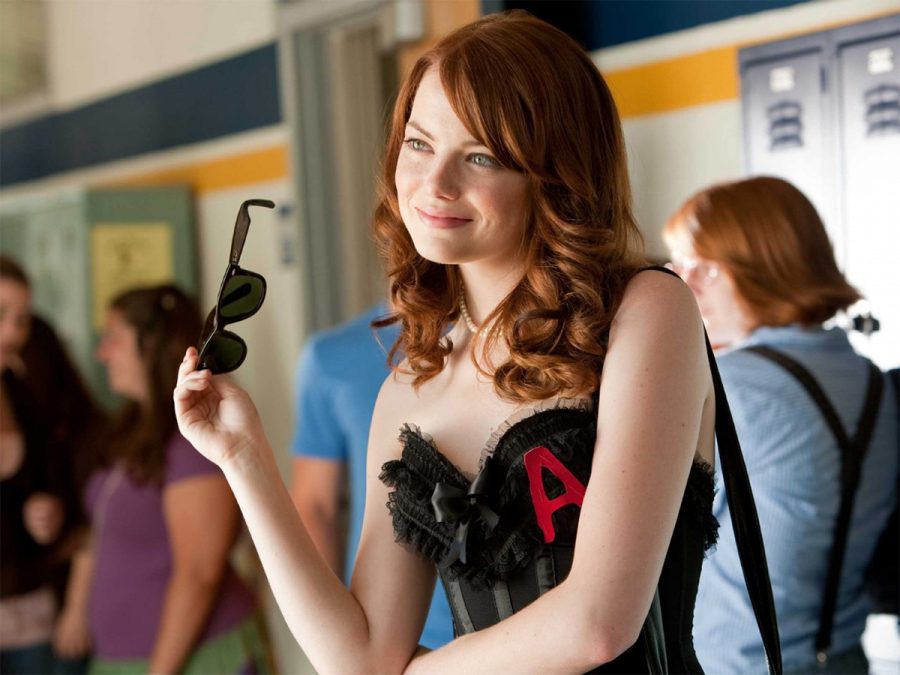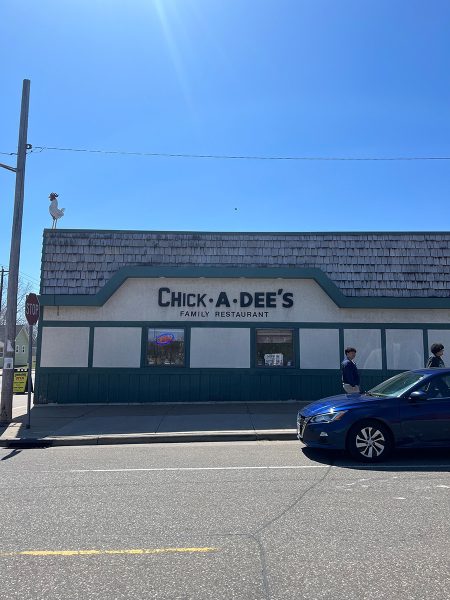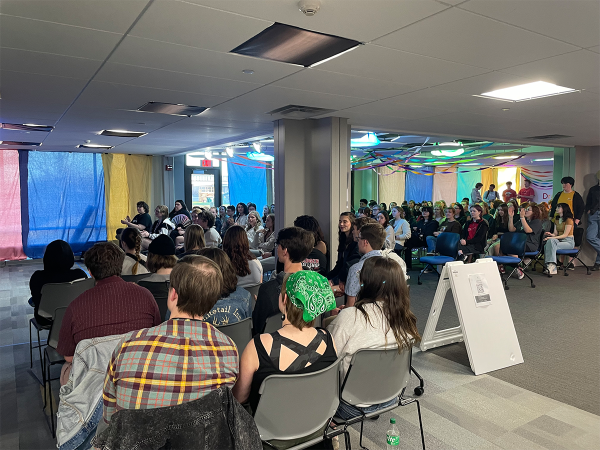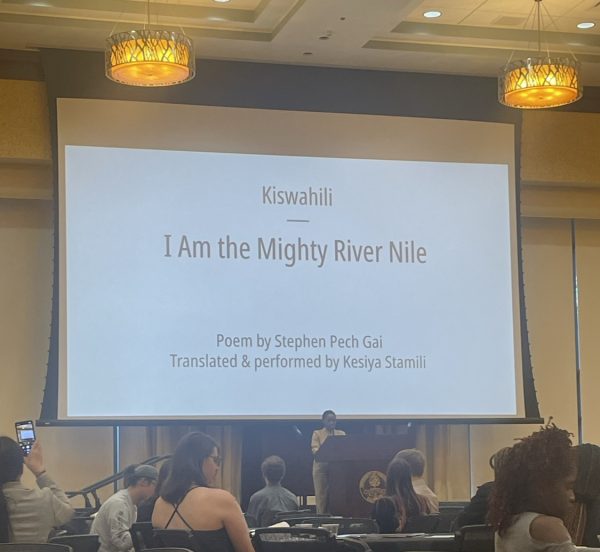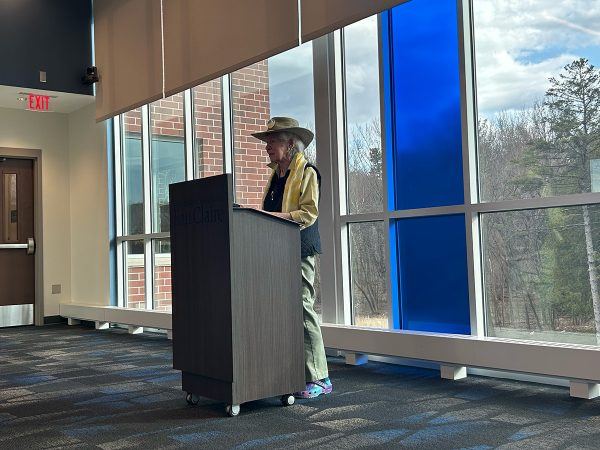‘Easy A’ in review
A modern retelling of ‘The Scarlet Letter’ addresses the double standard of female sexuality
More stories from Deanna Kolell
Photo by SUBMITTED
Olive Penderghast (Emma Stone) embraces her promiscuous alter ego following a false rumor concerning her sex life.
Before donning her primary-colored dresses and dancing in abandoned parking lots in “La La Land,” Emma Stone had to survive high school like everyone else.
In the 2010 film “Easy A,” Stone played Olive Penderghast, a high school student with an impressive vocabulary and sarcastic sense of humor.
At first, “Easy A” seemed like a formulaic high school film about a girl who felt invisible and studied a book that mirrors her life; in this case, it was “The Scarlet Letter.”
Although the film utilized many of those tropes, including shoutouts to ‘80s teen romance films, it ultimately turned the genre on its head by addressing the double standard of women’s sexuality.
For Olive, it all started with a white lie.
Because she didn’t want to go camping with her friend Rhiannon (Aly Michalka) and her hippie parents, Olive said she had a date with “George,” a made-up man from a community college.
Come Monday, Olive lied again that she had slept with George, and the rumor of Olive’s promiscuity spread around the school like wildfire.
Although Olive knew the rumors of her supposed indiscretions weren’t true, she enjoyed her newfound attention and delved deeper into her new persona, dressing in bustiers emblazoned with red A’s. Boys asked her to pretend to sleep with them, oftentimes paying her for the privilege.
As the film progressed, Olive’s control over the situation began to slip away. Although she originally thought she wasn’t hurting anyone, the repercussions of her actions soon became all too real.
In the end, Olive learned sometimes it’s best to be invisible.
Although Olive did not live in a Puritanical society like Hester Prynne, she suffered many of the same repercussions. Like Hester, she was ostracized by her peers and lost some friends along the way.
Probably the most devastating loss to Olive was Rhiannon’s reaction to her struggles. Rhiannon encouraged Olive’s wanton behavior until it didn’t suit her own interests, causing her to end their friendship.
In the same way, most of the characters in the movie used Olive to bolster their own reputations. The boys who paid her were able to get off scot free while Olive had to endure everyone’s judgement.
Much of the scorn Olive received was due to the double standard of female sexuality. For example, when she agreed to pretend to sleep with her friend Brandon, he instantly became a stud. However, Olive became a social pariah.
Presenting “Easy A” as a webcast demonstrated the current obsession with documenting everything that happens during the day. However, as Olive learned, she didn’t need everyone’s approval, just the approval of those she cares about.
Emma Stone carried this film from start to finish, and although it may not be a cookie-cutter romantic comedy or coming-of-age film, it delivered a relatable protagonist and an authentic story dipped in 80s nostalgia.
“Easy A” will play at 7 p.m. Friday; Saturday, at 2 p.m. and 7 p.m. and Sunday, at 2 p.m. in Woodland Theater.

